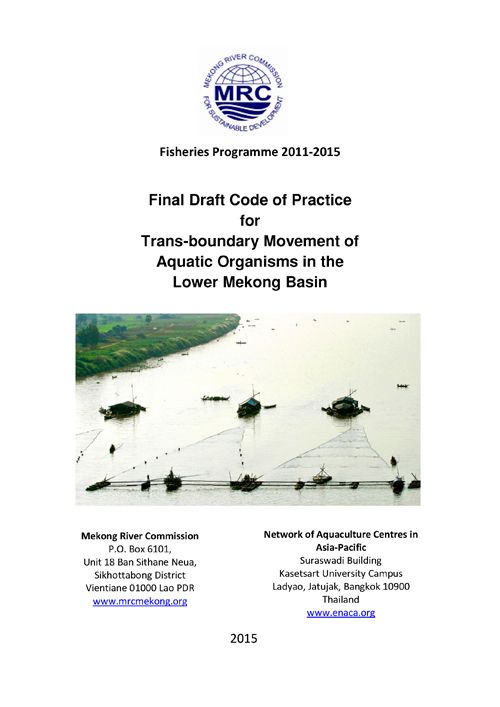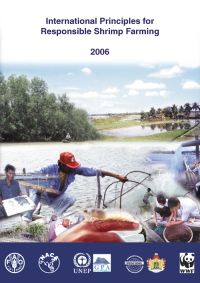Final Draft Code of Practice for Trans-boundary Movement of Aquatic Organisms in the Lower Mekong Basin
28 January 2016 | 2366 Downloads | .pdf | 387.14 KB | Better management practices, Cambodia, Freshwater finfish, Genetics and Biodiversity, Health and Biosecurity, Inland aquaculture, Lao PDR, Livelihoods, gender and social issues, Environment and Sustainability, Thailand, Vietnam
This Code of Practice is prepared to promote or ensure compliance to World Trade Organisation-Sanitary and Phytosanitary (WTO-SPS) measures for the movement of live aquatic organisms in the Lower Mekong Basin (LMB). The long-term goals of the Code are to achieve environmental protection and management, biodiversity conservation as well as prevention of spread of disease epizootics. Most of the important points listed in this Code are based on the inputs of MRC Member Countries through national reviews on the Impacts of Exotic Species on Natural Environment and Aquaculture.
This Code requires MRC Member Countries to take responsibility in determining what aspects of the different activities related to transboundary movement of aquatic animals in the LMB that may bring significant risks to the environment, biodiversity as well as to the aquaculture and fishery industries in the region. The Code further requires members to formulate, develop and implement necessary actions to mitigate the negative impacts of aquatic animal species introductions, especially exotics, into the LMB.
The Code is approved by the Technical Advisory Body on Fisheries Management in the LMB (TAB). The approved Code will be guidance for LMB countries to consider developing and formulating their national codes accordingly to mitigate the negative impacts from unregulated movement within and across national boundaries and for economic, social and development purposes in the LMB.
Copyright, all rights reserved.

